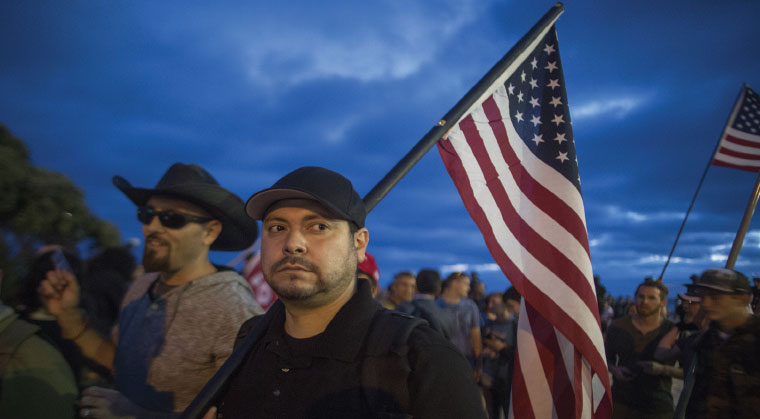Democracy on Sickbed, Not Deathbed


ALIVE KICKING AND SCREAMING Getting kicked out of the Knesset plenum for yelling and screaming is part of Israel’s parliamentary culture not necessarily a sign of an ailing democracy (Photos: Flash90/AFP/Imagebank)
T his hasn’t been an easy year for America’s battered and bruised democracy.
For the first time ever the Economist Intelligence Unit’s Democracy Index downgraded the United States from the ranks of full democracy to a “flawed democracy” citing surveys by the Pew and Gallup polling agencies confirming that public confidence in government has slumped to historic lows.
And it’s not President Trump’s fault. “Donald Trump is not to blame for this decline in trust which predated his election but he was the beneficiary of it ” according to the report.
Overall some 72 countries of the 165 surveyed experienced a decline in their total score compared with the previous year while just 39 countries recorded an improvement. Norway Iceland and Sweden hold down the top three spots with Chad Syria and North Korea bringing up the rear.
The US fell from 19th in 2015 to 21st in 2016 while Israel rose five notches from 34 to 29. The Economist ranks Israel and Tunisia (69th place worldwide) as the Middle East’s only democracies flawed or otherwise.
The Economist credits Israel with improving accountability through offices such as the attorney general and the accountant general ensuring that government remains accountable to the public between elections. The US it says has been suffering from decades of major confidence-damaging political events including Vietnam Watergate and the 2008 financial crisis worsening income inequality and political gridlock.
Despite Israel’s climb its democracy seems just as troubled as America’s — if not more so. Prime Minister Netanyahu is the target of multiple investigations. Hardly a day goes by without one or more coalition partners threatening to bolt the government. And there are plenty of agitators whether they be NGOs radical Islamists or Israel’s unrepentant left who all pull and tug at democracy’s seams.
Shared democratic values have always been a key component of the US-Israel relationship. One of Israel’s strongest selling points to Americans is that it is the only democracy in the Middle East that the US can fully trust. The fraying of their respective democracies poses a risk to the bonds between the two nations. Israel would pay a high price because it relies on the US for military and moral support in a world that’s arrayed against it while the US can’t afford to lose Israel as a strategic and intelligence asset in an increasingly unstable world.
That a democracy has its flaws is not as important as how it deals with them says Dr. Shany Mor a former director of foreign policy on Israel’s National Security Council who led a breakout session on the positive attributes of both Israeli and American democracy at this year’s AIPAC conference in Washington D.C.

Donald Trump is the beneficiary of a decline in trust in government not the cause according to the Economist
Israel has seen 34 governments come and go in nearly 69 years of statehood but they have all disappeared through the ballot box not at gunpoint. “Almost all other new countries aside from Israel formed in the years after World War II that established democracies had them toppled by dictators or experienced civil wars ” Dr. Mor says.
He credits that relative stability to the broad-based participation Israel has encouraged in its parliamentary elections and to a longstanding Jewish tradition of Torah study that encourages legitimate disagreement. “Having a system that brings everybody in even permanent minorities that have no hope of ever coming to power gets them into the game. They learn to use their talking power not shooting power ” Dr. Mor says.
In that regard the Economist tips its hat to the US noting that respect for the constitution and democratic values are deeply entrenched from centuries of democratic practice. As a result the system is usually able to obtain majorities for urgent and crucial decisions even as solutions to long-term problems often fall victim to deadlock.
And despite the deadlock Dr. Mor contends there is plenty of room inside America’s democratic system to accommodate the range of opinion that Israel’s Knesset does.
“Even in America’s two-party system each party is a coalition of varying interests although you have some very large competing factions who don’t always get along and we’ve really seen that in recent days ” he says.
Despite those flaws Dr. Mor says there is no reason to write off America’s democracy or search for a better system: “Sometimes democracies have to make mistakes and correct them. Hopefully the mistakes are small enough that you can recover from them.” (Originally featured in Mishpacha Issue 656)
Oops! We could not locate your form.







